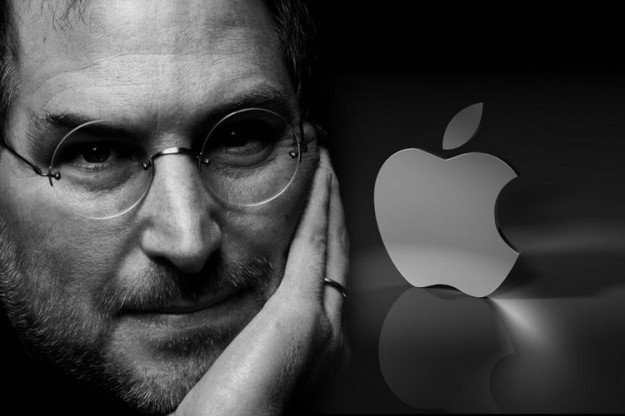Steve Jobs and the Krishna Connection
By Venkata Bhatta dasa (Vineet Chander) | Oct 08, 2011

The world continues to mourn the death of Apple founder and visionary Steve Jobs, who passed away on Wednesday, October 5, hailing him as an innovator who forever changed the landscape of our lives. In offering our condolences, Hare Krishna devotees might be especially interested to reflect on some interesting connections between this remarkable man and our own faith tradition. Here are three:
First, as a young man Jobs regularly attended the Sunday Feast at an ISKCON temple. He famously recollected that special time in his life, shortly after he dropped out of Reed College but continued to drop in on classes there, while delivering the commencement address at Stanford University in 2005. “It wasn’t all romantic,” he told students in the now iconic speech, “I didn’t have a dorm room, so I slept on the floor in friends’ rooms. I returned coke bottles for the 5¢ deposits to buy food with. And I would walk the 7 miles across town every Sunday night to get one good meal a week at the Hare Krishna temple. I loved it.” The whole speech is an inspiring and thoughtful reflection, but it was that last bit—about depending upon the Krishna temple for his one good meal a week (and loving it)—that ISKCON devotees especially latched on to. One of the most influential and admired men in the world once relished sanctified vegetarian food at a Krishna temple, and those meals played a defining role in his journey towards success against all odds. Understandably, Hare Krishna devotees were thrilled to hear him remember it fondly.
To watch Stanford commencement video click here: http://news.iskcon.com/node/3926
Incidentally, the episode has since expanded and morphed into something of an urban legend within the ISKCON world. More colorful versions are told and re-told, in which Jobs not only ate at the temple but stayed there for some time as well. Some devotees insist that a friend-of-a-friend vividly remember washing pots with Steve each week. In one re-telling, Steve’s visits supposedly came to an abrupt end after a particularly fanatical brahmachari insisted that he either join the temple full-time or stop availing himself of the free food, turning the story into a parable about the dangers of chasing away guests and burning bridges.
A second connection between Steve Jobs and Krishna consciousness was Steve’s interest in Eastern spirituality. In 1973, Jobs traveled to India with a friend (who later would become the first Apple employee) to study with popular guru Neem Karoli Baba. Although the Baba was not a Gaudiya Vaishnava, he considered kirtan to be central to his practice and teachings. He often chanted the Hare Krishna mahamantra, and encouraged others to as well. Neem Karoli Baba passed away before Jobs could meet him and the India trip was reportedly something of a disappointment for the young seeker. Eventually, he took up the practice of Buddhist meditation instead. Still, it’s quite likely that during his visit to the Baba’s ashram, Jobs chanted Hare Krishna with the other disciples there. And, according to one biographer, he returned to the West with Eastern philosophy on his lips, and sporting a freshly shaved head and loose-fitting Indian clothes—an experience that most Hare Krishna devotees can relate to all too well.
Finally, a third, more indirect, connection: Hare Krishna devotees seem to love Apple products. I am not aware of a formal poll or survey on the subject, but empirical evidence seems to suggest that devotees tend to use Apple products – computers, laptops, iPods, iPads and iPhones – more than they do the non-Apple equivalents. Devotee festivals and GBC meetings abound with gadgets featuring that unmistakable apple-with-a-bite logo. Maybe this is not so surprising, considering the company’s emphasis on innovation and thinking differently. Taking the alternative route and not being afraid to go against the grain are hallmarks of Krishna devotees, especially the early converts to Krishna consciousness. Business experts often spoke of Steve Jobs as a charismatic guru-like figure, and used terms such as “Apple devotees” or “the cult of Mac.” In fact, author Douglas Atkin explicitly suggested that Apple and ISKCON had much in common and favorably compared the two organizations in his book The Culting of Brands. For their part, Krishna devotees seem to playfully accept that Apple products are part of the new ISKCON culture. A prominent sannyasi and GBC member even quipped to me once, “Since I’ve started using an Apple, I realize that all other computers are non-vegetarian.”
Thanks largely to social networking sites like Facebook, ISKCON devotees have already started expressing their condolences and appreciations for Jobs. The video of the Stanford commencement speech will likely go viral again, as devotees forward it on and post it on their profiles. I hope that along with basking in the line about his trips to the temple, devotees will also take the time to attentively hear the wisdom in the rest of the speech. By all accounts Steve Jobs was a remarkable man, empowered in a certain sphere, and connected – perhaps in a way that we cannot fully comprehend – to the Krishna factor.















